Hither & Yon
We are excited to be able to share this series of stories with you each Wednesday from these four award-worthy writers. All but this first tale are flash. (We believe there will be 26 in all, but wouldn't put it past these four to come up with an alien alphabet and just keep writing....) After you read many of the stories here, the entire series will be available in audio from Escape Artists. We'll share more information and a specific url later when the stories are available, in March or thereabouts.

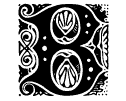



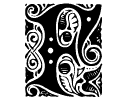





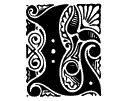

The mall walkers would arrive an hour before the shops opened, when it was so quiet that all you could hear was the hum of the air conditioners and the soft clip-clop of their sneakers on the buffed floor. Decked out in their jogging suits, they'd stride down the concourses, swinging their arms with elbows bent, keeping their old hearts fit. It was a nice little thing the mall did, opening the doors early for the senior citizens so they could get their exercise in a safe, sheltered environment. They scheduled me to work early morning security.
The mall was shaped like a cloverleaf, but the walkers traced a more complicated pattern than that. They'd hoof down the central walkway, then stop about halfway, right before the Hallmark store, head back until they got to the Florsheim Shoes. Then, up the escalator they'd go, walk a mere twenty yards to the pet shop, go right back down the escalator, looping this way and that, up and down, back and forth. It seemed like a crazy, random route, but there was nothing random about it. They walked the exact same pattern every day.
One day I asked Ed about it. He carried his own oxygen in a metal bottle and breathed through a plastic tube in his nose, but he was there every morning, keeping a brisk pace.
"Everyone walks a pattern," Ed said. "From cradle to grave. But it's not until you've walked it long enough that you see the maze you're in. People all over the world throughout history have made labyrinths. You'll find them in the great European cathedrals, or on stones the Celtic wise women passed down from mother to daughter, or in the rock etchings of the Hohokam. Theseus found a monster at the center of his labyrinth, a wild man-beast. Some people find God, or the Great Spirit."
That all made a lot of sense to me.
"What's at the center of your labyrinth?" I asked him.
He just smiled and kept on walking.
About a month after that conversation, the mall installed kiosks in the middle of the walkways, ugly stalls selling hair extensions and shitty jewelry and wind-up toys. It was an easy way to raise rental revenue with minimal development costs. Mall management plopped a stall hawking cell phone accessories right in the middle of the mall-walkers' path.
I figured Ed and the others would complain to me, and I'd tell them to talk to management, and it would be a long and tedious battle that the walkers would ultimately lose. But it didn't happen that way. The first day the cell phone kiosk showed up, the walkers stepped right up to it, halted, turned around, and marched right out the doors, not even stopping for Cinnabons on the way out.
The very next day, a meteorite came screaming down like a bullet fired from God's own gun and turned the mall to shrapnel.
I found another security guard job at the Galleria downtown. It's an upscale mall, and nobody gets let in before hours. So I work overtime, wandering a path that's a little less random everyday, keeping my eyes cast toward the skylights above.
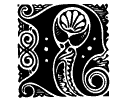


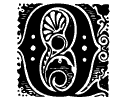
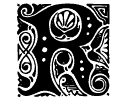

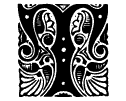
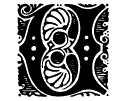
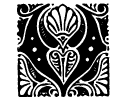
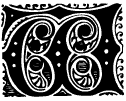
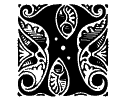
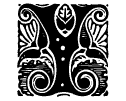
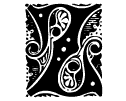
The Alphabet Quartet
We are excited to be able to share this series of stories with you each Wednesday from these four award-worthy writers. All but this first tale are flash. (We believe there will be 26 in all, but wouldn't put it past these four to come up with an alien alphabet and just keep writing....) After you read many of the stories here, the entire series will be available in audio from Escape Artists. We'll share more information and a specific url later when the stories are available, in March or thereabouts.

by Tim Pratt, Jenn Reese, Heather Shaw, Greg van Eekhout
Will stood on the riverbank and lifted a sheaf of papers to the moon. "Here is Arthur," he thundered in the remains of his stage-seasoned voice, "the tragedy of the world’s mightiest king, penned by John Shakespeare's boy, a humble Stratford mummer." Bowing deeply, he laughed at his own theatricality. Then he coughed until his breaths came in a ragged whistle.
A twig snapped and Will spun, unsheathing the dagger on his belt. Less than two yards away stood a tall man cloaked in black.
"You call that a Stratford welcome?" said the stranger, his eyes shining like blue flame.
"It was a welcome learned in London," Will panted. The man's hands were large and calloused, but with gracefully tapered fingers. His eyes gleamed an infernal blue.
"You think me a devil," said the stranger. "You believe in such things."
"True," said Will. He considered calling for the constable but doubted it’d do him much good. He’d already shouted his lungs raw at the moon and attracted no notice. Old Dogberry was probably fast asleep in the guild hall doorway.
Without threatening, Will turned the knife to make the blade wink in the moonlight. "Tell me your business or take your leave."
Nodding, the stranger stroked his beard. "Who I am is who I’ve always been, and what I want is your play."
Will allowed his face no change in expression, but his heart kicked a hammering rhythm. He’d spent his last year at home as a nocturnal creature, ostensibly reading and attending to his business affairs while, in truth, he’d been writing as though his life depended upon it. No one knew about the play. Not even Anne. He was supposed to be retired for good, and if Anne had known he planned to leave again for London …
He studied the stranger’s expectant gaze, considered what he ought to do, decided, bolted up the river bank with all the speed he could muster. "Constable!" he managed to shout, his feet struggling for purchase in the mud. "Thieves!"
He surmounted the slope and froze. The stranger had somehow beaten him to the top and now towered over him.
"You were right about the constable, Will. He is asleep. He’ll be asleep for a
very long time." The stranger reached out, his long fingers uncurling like serpents. "Now. Your play."
With one hand, Will held the papers tighter. With the other hand, he leveled the knife blade at the stranger’s fiery eyes.
"Go on, then," he said. "Take them."
The stranger showed his teeth in a thin smile, light shining behind his blue eyes.
And then Will was elsewhere.
She awakes from a dream and finds herself in the tomb with Romeo. He pants such ridiculous, over-the-top poetry while he makes love to her. And she adores every syllable of it. She sees how his lips tremble, feels his hot breath against her neck.
And then Romeo grows still.
And then Romeo grows cold.
His body lies sprawled over hers, stiff fingers clutching her hair. His flesh looks waxy. He does not breathe. Dry vomit cakes his lips shut.
And still, she cannot bring herself to push him away, for even this repulsive contact is better than no contact at all.
Will falls from that stage to the others.
He awakens in a fairy glade with his body grafted to the head of an ass and finds his once brilliant mind dull beyond reckoning.
With a pumice stone, he scrubs damned spots of blood from his hands but still can’t cleanse away the ugly stain of regicide.
On and on he plummets through his own works, from King Henry V ordering the execution of his boyhood friend, to doddering old Lear unable to hold his own bladder. He dies a hundred times, loses a hundred loves, suffers a hundred shames, and dies a hundred times more.
And then, when it’s all over, he find himself once more in the cold tomb, the knife in her hand.
The descent begins anew.
"Had enough?"
Will sat with his head between his knees. He felt as if every particle of his being had been ripped asunder and put back together by an inexpert hand.
"Yes," he croaked at last. "Enough."
"I took you very far away, poet."
"What do you mean 'took' me?"
Crossing his arms and arching his eyebrows, the stranger sneered down at Will. "Do you think I have time to spare explaining myself to you, little man? I haven't come all this way to chat, poet."
Will smiled. Something loose rattled in his lungs. "Of course you've come to chat, Merlin. That's what you do. You thunder and roar and carry on, and all the while you're craving to tell anyone who'll listen how clever and important you are. I've read the stories about you. I've even written one myself. So, please, stop playing your games. I want to know what you did to me."
Merlin stroked his long silver beard. "Very well. Very well. I suppose I owe you that, at least. Think of the places I took you as islands to your mainland universe. The seas are so treacherous that your ships can never go there, and the journey would drive your cartographers insane. Only human thought, only human imagination holds their firmament together. I could tell you more, but then we'd be getting into matters best left to wizards like myself and physics priests of the next milennia."
Will nodded. He thought he'd understood part of what Merlin had said. "I see. Dream shadows brought into motion by the dreamer's will. These islands are of your crafting, Merlin?"
Merlin smiled his smile. "Not of my crafting, poet. Of yours. Each of your stories rises as an island in the multiversal sea. Not as a shadow, but as a solid piece of land, with grass and muck and birds and gnats. And long after you've lifted your pen from the page, long after the actors have fled the stage and wiped clean their make-up, do your dreams perpetuate."
Will put a hand to his chest. Was he now to suppose he was more than a creator of plays, but a creator of worlds? Of human beings? Was he to give credence to the blasphemous proposal that he was a god? A gnawing voice in his head told him to do so.
He rose wobbly to his feet. "What happens to these islands after I'm dead?"
"Your worlds will live on."
"The king of Denmark is destroyed eternally at his brother's hands?"
"Yes."
"Juliet must always die?"
"Yes. And I'll take the new play now."
Will looked down at his hand. Through all this, he hadn't released his hold on the sheaf. Just as he couldn't let go of the notion that he was just a writer, better than most, but still a writer and nothing more.
"Why do you want my Arthur?"
Merlin glanced down and took a breath. "He's wounded," he said, his voice gone unexpectedly soft. "And he needs to rest. No one has managed to disturb his slumber so far. Not the Celtic bards, not the French, not your own country's Mallory." He locked his blazing eyes with Will's. "But your own play, poet ... If you release your play, and it touches the minds of men, then Arthur will be forever consigned to one of your islands. He'll be damned to lay his sister and build his kingdom and suffer betrayals and watch Eden fall and die at the hands of his own son. Again and again and again. Forever."
Merlin was almost inaudible now. "Look around you, poet, and what do you see? A nice church, nice cottages and farms, orchards, a pretty bridge over a pretty river. A much nicer place than most parts of the world. But Camelot ... " He smiled and looked even older. "Camelot was something other, poet. You don't know. You just don't know."
"I can imagine," said Will.
Merlin offered him a look that was almost friendly. "I suppose you of all people could. So you understand why Arthur must be allowed to sleep. Why you must let him heal." Merlin spread his arms in a sweeping gesture that encompassed Stratford and beyond. "This land depends on it."
Will turned and faced away. The moon was high overhead now, casting the church in silver fire. A breeze carried the heart-breakingly autumnal scent of apples ripe on the trees. Below, the river flowed endlessly on.
"I worked myself to the verge of death on this play, you know. I'm an old man now with thousands of stories left to tell but no time left to tell them. Do you have any idea what you're asking of me, wizard?"
"I do, wizard."
Will almost laughed but coughed instead. "Leave me, Merlin. I'll do this alone."
He turned again, and Merlin was gone.
Will held the play out in front of him, feeling the satisfying weight of the sheaf. I made this, he thought, knowing that the making wasn't enough. There had to be the sound of actor's voices. There had to be the gasps and applause of the audience.
Often, to see how a performance was going, he'd sneak in among the groundlings. An unruly bunch they were for sure, but sometimes, during the play's strongest parts, they'd fall mute, and their eyes would shine with the wonder of children.
Will's Arthur deserved such an honor. And, by God, such an honor he would have, and Will would take him to London and put him on the stage and it would be great and everyone would bloody love it and so what if there would never be another Camelot?
Then, slowly, page by page, he cast the manuscript in the river, watching the pages float downstream only a short distance before vanishing below the dark water. Writing the play had taken a year of long, solitary nights, squinting in dim light with fatigued eyes, missing the comfort of Anne's bed.
To destroy the play took less than a minute.
He was trudging up the path back to the graveyard when he saw a light through the corner of his eye. A stone near his foot glowed soft green. More stones lit up as he walked on, and soon the wildflowers and bushes and trees along his route bathed him in a brilliant glow that warmed his skin. The wind played beautiful harmonies through the leaves, and overhead, the stars danced in the sky like fireflies.
Will turned toward the sound of clashing blade metal and saw two men in silver armor at combat. Though weighted in plate mail, they moved swiftly, powerfully, and each time their swords met, the earth shuddered ever so slightly. As they fought, their voices rose above the din, voices raised not in venom and anger, but in the laughter of friendship. And in the distance, looming in silken mists, stood a castle, a white castle that seemed to radiate its own sunlight, and Will wept to see it, and his belly felt warm and full, and for a brief moment, he was young and powerful and capable of anything, and so was the world around him, and it would last forever, and he would write forever.
And then the miracle ended.
So that's what it was like, he thought. Something other.
He nodded his thanks to the old stranger and continued on to bed.
And there he spent his final two weeks, dreaming, but not writing, of once and future worlds.
Published on Jan 5, 2011

by Tim Pratt, Jenn Reese, Heather Shaw, Greg van Eekhout
Jonas was eight when his best friend, Tabitha (Tabby, Tabs, or the Tabster for short), climbed up the Banyan tree and disappeared into its branches. The ancient tree had been the setting for many of their childhood adventures, spanning as it did several backyards in their neighborhood. Jonas's dad was the sort to arrange playdates, though most other parents on the island didn't bother, but he was allowed to go play in the backyard unimpeded, and so it was easy to climb up, and over, and find other children playing in the rambling, forking branches of the enormous tree with many trunks.
Tabby wasn't the type of girl his father thought he should be playing with. She'd lived her whole life on the island, and went to the local school, which his father described in carefully neutral words in tight voices as he justified Jonas' tutors. She was a bit older, though he was never sure by how much -- she always changed the subject when he asked, so eventually he just stopped bothering her about it. She was always dirty, her clothes had small rips from hours spent among the branches, and she didn't like talking to adults, but let her voice drop to a low murmur when they addressed her.
That day, the last day Jonas saw Tabs, they'd climbed further into the branches than they ever had before. The tree always seemed endless, with a lattice pattern of branches supported by numerous roots, making the whole thing feel less like a tree than a giant, organic jungle gym. He climbed over to her yard and dropped down to call for her. Tabby came running out of the house, a backpack strapped on. "I was hoping you'd come today! Let's play explorer today!"
They usually pretended the tree was a hospital (which was usually Tabitha's favorite game, as it meant playing doctor), or a school, or that the branches were horses or motorcycles or carnival games. Explorer was a new one, but Jonas let Tabby take the lead, as usual.
They set off, taking branches that led away from their yards, with Tabby narrating the safari, pretending giant birds were attacking them, joining a group of monkeys, riding elephants, and negotiating with tribespeople along the way. It was impossible to keep track of the path they'd taken, and as it got dark, Jonas began to worry about finding his way home in time.
"Silly! If we keep going this way, we'll get to the shortcut and we'll be back before you know it."
Jonas was lost, but he wasn't turned around. Home was behind them, and if they kept going forward they'd only be further away. He said as much to Tabby, who rolled her eyes.
"You forget, I grew up in this tree, Jonas. Out here, the paths don't follow the branches."
Then she climbed up a branch and vanished.
Jonas called for her to stop hiding. His voice became shrill when she didn't answer and the silence among the branches let him know she was really gone. He turned around and made his way back, getting home long after dark.
Tabby called for him the next day, asking why he hadn't followed her. She told him the secret of the Banyan trees, how if you climbed the right branches in just the right order, you could pop out in another part of the tree or even, if you climbed the smallest branches, out into another tree altogether. She claimed to have seen Hawai'i and India this way, and showed Jonas a Maui keychain she said she'd shoplifted in Lahaina just last week. She begged him to follow her, to let her prove it "for real."
But Jonas just shivered, visualizing her climbing up, away from him, and vanishing from sight without even saying goodbye, and shook his head. The tree was now big and scary, and that long climb back through the dark branches by himself was real enough for him.
Published on Jan 12, 2011


by Tim Pratt, Jenn Reese, Heather Shaw, Greg van Eekhout
D is for De Gustibus
I'd never seen the little herb shop in the strip mall before -- though the truth was, I smelled it more than I saw it -- and I stepped inside, because when you live in the blandest reaches of outer suburbia, spices more exotic than cinnamon or sage are hard to come by. The shop was small and overstuffed, with weirdly geometric carpets hanging on the walls, and shelves filled with unlabeled glass jars in varying degrees of opacity. The proprietor was about four feet tall, dressed in what appeared to be more patterned carpets, and he -- she? -- walked with a weird foot-dragging gait. The voice that emerged from the hood was pure mid-Atlantic telemarketer, though: "May I help you?"
"What kind of stuff do you have here?" I asked.
"We have many interesting things. Melange. Kingsfoil. Azoth. Devil weed. Selenine. Ryll."
"Wow. That's some selection." I'd never heard of any of those. "Uh, I was just looking for something to make a curry..." I saw a clear vial of yellow spice and said, "Hey, is that turmeric?"
The proprietor hmmed. "I do not know that word, but local names vary. It has many wonderful properties --"
"I was reading about that in a magazine," I said. "Turmeric is good for digestive problems, right? And they think it might help fight Alzheimer's, arthritis, and cancer, too. Yeah?"
The shopkeeper sort of twitched. "I think perhaps --"
"Well, all I care is it tastes good." I picked up the vial. "How much for this?" I pulled out my wallet, and the little coin pouch wasn't zipped right, so nickels and dimes and quarters scattered on the floor.
The shopkeeper knelt and looked at the coins. "Tiny round portraits," he said. "I will take these."
It was only about a buck forty-five in change so I didn't argue. I took the spice home, looked up some recipes online, and made myself a yellow curry, though I had to substitute soy sauce for fish sauce and lemon peel for lemon grass.
From the first bite I knew something was wrong. The curry didn't taste like food at all. It tasted like hot ashes and interstellar voids and the true meaning of insignificance.
I went back to the shop for a refund, but the doors were closed. I suddenly understood that all matter was only molecules separated by vast emptiness, though, so it was easy to make the nothingness in me line up with the nothingness in the door so I could pass right through to the inside. The shopkeeper was nowhere to be seen, but his rugs made sense to me now: the patterns were sort of like roadmaps, and also sort of like doors. From here, there was almost nowhere I couldn't go.
I picked a destination at random. I couldn't wait to find out what the food tasted like in all the ten million worlds of the night.
Published on Jan 26, 2011

by Tim Pratt, Jenn Reese, Heather Shaw, Greg van Eekhout
Published on Feb 2, 2011







by Tim Pratt, Jenn Reese, Heather Shaw, Greg van Eekhout
Published on Mar 23, 2011

by Tim Pratt, Jenn Reese, Heather Shaw, Greg van Eekhout
Published on Mar 30, 2011

by Tim Pratt, Jenn Reese, Heather Shaw, Greg van Eekhout
Published on Apr 6, 2011

by Tim Pratt, Jenn Reese, Heather Shaw, Greg van Eekhout
Published on Apr 13, 2011




by Tim Pratt, Jenn Reese, Heather Shaw, Greg van Eekhout
Published on May 11, 2011

by Tim Pratt, Jenn Reese, Heather Shaw, Greg van Eekhout
Published on May 18, 2011

by Tim Pratt, Jenn Reese, Heather Shaw, Greg van Eekhout
As I made love to my wife, with the windows open and evening air cooling our sweaty skin, glowing thumbs popped up around our bedroom. Six thumbs up, four thumbs down.
Published on May 25, 2011



by Tim Pratt, Jenn Reese, Heather Shaw, Greg van Eekhout
Published on Jun 15, 2011





